Daniel MacArthur
@dgmacarthur.bsky.social
Genomics, big data, open science, diversity. Director of the Centre for Population Genomics, focused on building a more equitable future for genomic medicine. Opinions my own.
Reposted by Daniel MacArthur
What did the largest trial of an early detection of cancer blood test show?
erictopol.substack.com/p/the-larges...
erictopol.substack.com/p/the-larges...

The Largest Study of a Multi-Cancer Early Detection Blood Test
Reviewing the new data and the "liquid biopsy" field
erictopol.substack.com
October 21, 2025 at 1:36 PM
What did the largest trial of an early detection of cancer blood test show?
erictopol.substack.com/p/the-larges...
erictopol.substack.com/p/the-larges...
Reposted by Daniel MacArthur
Planning your afternoon poster session at #ashg25? Come say hello!
This is an amalgamation of our two recent preprints - working with @gregfindlay.bsky.social , @cassimons.bsky.social , @dgmacarthur.bsky.social and many others to study variation across RNU4-2 and describe a new recessive NDD 🧬
This is an amalgamation of our two recent preprints - working with @gregfindlay.bsky.social , @cassimons.bsky.social , @dgmacarthur.bsky.social and many others to study variation across RNU4-2 and describe a new recessive NDD 🧬

October 16, 2025 at 2:55 PM
Planning your afternoon poster session at #ashg25? Come say hello!
This is an amalgamation of our two recent preprints - working with @gregfindlay.bsky.social , @cassimons.bsky.social , @dgmacarthur.bsky.social and many others to study variation across RNU4-2 and describe a new recessive NDD 🧬
This is an amalgamation of our two recent preprints - working with @gregfindlay.bsky.social , @cassimons.bsky.social , @dgmacarthur.bsky.social and many others to study variation across RNU4-2 and describe a new recessive NDD 🧬
Awesome work by @zornitza.bsky.social and collaborators showing the immediate value of WGS for newborn screening in a cohort of 1,000 Australian babies. Now we need larger, more diverse cohorts to show this approach can achieve population scale!
🤗 Out now @naturemedicine.bsky.social results of our genomic NBS study BabyScreen+ 👶🧬
👉 www.nature.com/articles/s41...
1,000 babies
WGS using existing cards
600+ conditions
13 day TAT
16 diagnoses (vs 1 in std NBS)
High clinical impact
High parental acceptability
👉 www.nature.com/articles/s41...
1,000 babies
WGS using existing cards
600+ conditions
13 day TAT
16 diagnoses (vs 1 in std NBS)
High clinical impact
High parental acceptability

October 14, 2025 at 9:54 PM
Awesome work by @zornitza.bsky.social and collaborators showing the immediate value of WGS for newborn screening in a cohort of 1,000 Australian babies. Now we need larger, more diverse cohorts to show this approach can achieve population scale!
Reposted by Daniel MacArthur
🤗 Out now @naturemedicine.bsky.social results of our genomic NBS study BabyScreen+ 👶🧬
👉 www.nature.com/articles/s41...
1,000 babies
WGS using existing cards
600+ conditions
13 day TAT
16 diagnoses (vs 1 in std NBS)
High clinical impact
High parental acceptability
👉 www.nature.com/articles/s41...
1,000 babies
WGS using existing cards
600+ conditions
13 day TAT
16 diagnoses (vs 1 in std NBS)
High clinical impact
High parental acceptability

October 9, 2025 at 8:03 PM
🤗 Out now @naturemedicine.bsky.social results of our genomic NBS study BabyScreen+ 👶🧬
👉 www.nature.com/articles/s41...
1,000 babies
WGS using existing cards
600+ conditions
13 day TAT
16 diagnoses (vs 1 in std NBS)
High clinical impact
High parental acceptability
👉 www.nature.com/articles/s41...
1,000 babies
WGS using existing cards
600+ conditions
13 day TAT
16 diagnoses (vs 1 in std NBS)
High clinical impact
High parental acceptability
Reposted by Daniel MacArthur
In these dark times, it comes as a rare pleasure to highlight @natanaels.bsky.social & @marcdemanuel.bsky.social's work on germline and somatic mutations in humans. 1/n
www.biorxiv.org/cgi/content/...
www.biorxiv.org/cgi/content/...
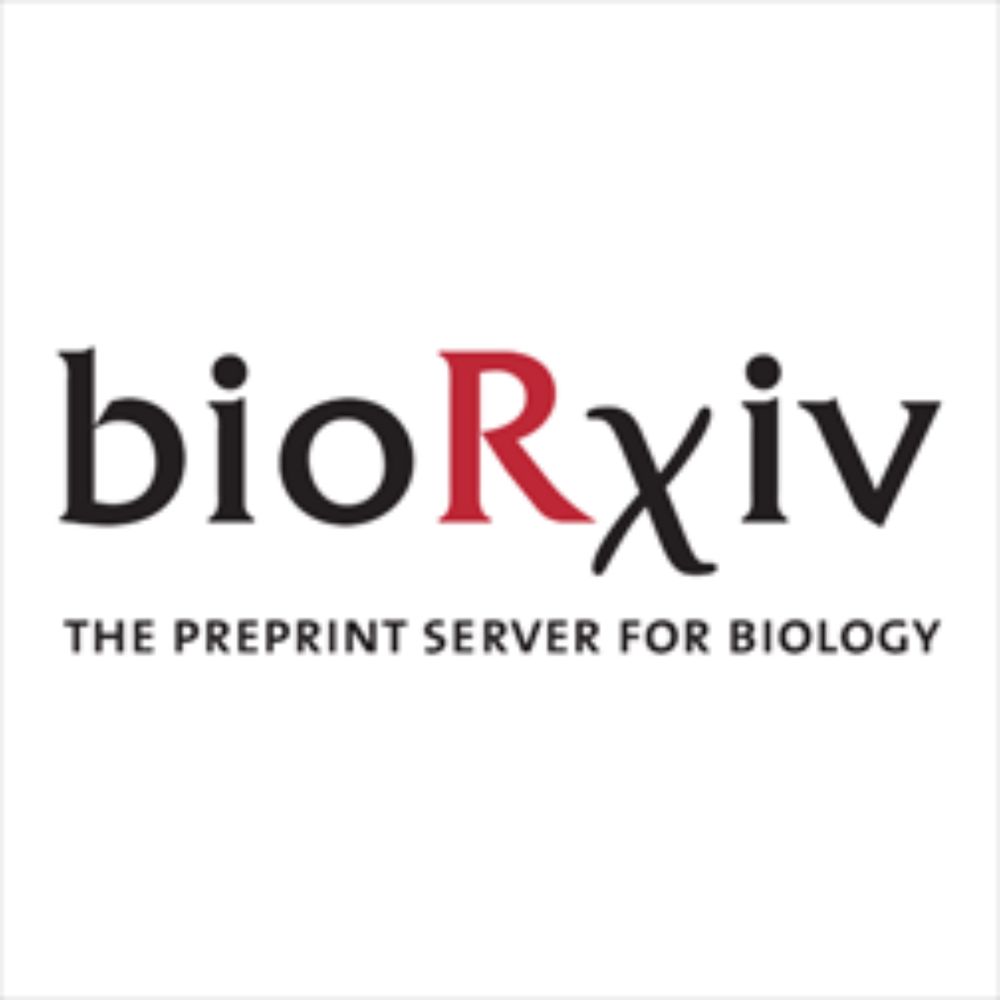
Collateral mutagenesis funnels multiple sources of DNA damage into a ubiquitous mutational signature
Mutations reflect the net effects of myriad types of damage, replication errors, and repair mechanisms, and thus are expected to differ across cell types with distinct exposures to mutagens, division ...
www.biorxiv.org
September 2, 2025 at 11:44 AM
In these dark times, it comes as a rare pleasure to highlight @natanaels.bsky.social & @marcdemanuel.bsky.social's work on germline and somatic mutations in humans. 1/n
www.biorxiv.org/cgi/content/...
www.biorxiv.org/cgi/content/...
And now the fourth preprint from the TenK10K phase 1 dataset, led by @anglixue.bsky.social from @drjosephpowell.bsky.social's team - looking at genetic impacts on cell type-specific chromatin accessibility in 1,000 individuals who also have WGS and scRNA-seq!
New preprint alert: tinyurl.com/tenk10k-multiome. Excited to share our analysis on the impact of genetic variants on single-cell chromatin accessibility in blood, using scATAC-seq and WGS from over 1,000 donors and 3.5M nuclei as part of TenK10K phase 1 🧬
🧵👇 (1/n)
🧵👇 (1/n)

Genetic regulation of cell type-specific chromatin accessibility shapes immune function and disease risk
Understanding how genetic variation influences gene regulation at the single-cell level is crucial for elucidating the mechanisms underlying complex diseases. However, limited large-scale single-cell multi-omics data have constrained our understanding of the regulatory pathways that link variants to cell type-specific gene expression. Here we present chromatin accessibility profiles from 3.5 million peripheral blood mononuclear cells (PBMCs) across 1,042 donors, generated using single-cell ATAC-seq and multiome (RNA+ATAC) sequencing, with matched whole-genome sequencing, generated as part of the TenK10K program. We characterized 440,996 chromatin peaks across 28 immune cell types and mapped 243,273 chromatin accessibility quantitative trait loci (caQTLs), 60% of which are cell type-specific. Integration with TenK10K scRNA-seq data (5.4 million PBMCs) identified 31,688 candidate cis-regulatory elements colocalized with eQTLs; over half (52.5%) show evidence of causal effects mediated via chromatin accessibility. Integrating caQTLs with GWAS summary statistics for 16 diseases and 44 blood traits uncovered 9.8% - 30.0% more colocalized signals compared with using eQTLs alone, many of which have not been reported in prior studies. We demonstrate cell type-specific mechanisms, such as a regulatory effect on IRGM acting through altered promoter chromatin accessibility in CD8 effector memory T cells but not in naive cells. Using a graph neural network, we inferred peak-to-gene relationships from unpaired multiome data by incorporating caQTL and eQTL signals, achieving up to 80% higher accuracy compared to using paired multiome data without QTL information. This improvement further enhanced gene regulatory network inference, leading to the identification of 128 additional transcription factor (TF)-target gene pairs (a 22% increase). These findings provide an unprecedented single-cell map of chromatin accessibility and genetic variation in human circulating immune cells, establishing a powerful resource for dissecting cell type-specific regulation and advancing our understanding of genetic risk for complex diseases. ### Competing Interest Statement L.C., E.B.D., and K.K.H.F. are employed at Illumina Inc. D.G.M. is a paid advisor to Insitro and GSK, and receives research funding from Google and Microsoft, unrelated to the work described in this manuscript. G.A.F reports grants from National Health and Medical Research Council (Australia), grants from Abbott Diagnostic, Sanofi, Janssen Pharmaceuticals, and NSW Health. G.A.F reports honorarium from CSL, CPC Clinical Research, Sanofi, Boehringer-Ingelheim, Heart Foundation, and Abbott. G.A.F serves as Board Director for the Australian Cardiovascular Alliance (past President), Executive Committee Member for CPC Clinical Research, Founding Director and CMO for Prokardia and Kardiomics, and Executive Committee member for the CAD Frontiers A2D2 Consortium. In addition, G.A.F serves as CMO for the non-profit, CAD Frontiers, with industry partners including, Novartis, Amgen, Siemens Healthineers, ELUCID, Foresite Labs LLC, HeartFlow, Canon, Cleerly, Caristo, Genentech, Artyra, and Bitterroot Bio, Novo Nordisk and Allelica. In addition, G.A.F has the following patents: "Patent Biomarkers and Oxidative Stress" awarded USA May 2017 (US9638699B2) issued to Northern Sydney Local Health District, "Use of P2X7R antagonists in cardiovascular disease" PCT/AU2018/050905 licensed to Prokardia, "Methods for treatment and prevention of vascular disease" PCT/AU2015/000548 issued to The University of Sydney/Northern Sydney Local Health District, "Methods for predicting coronary artery disease" AU202290266 issued to The University of Sydney, and the patent "Novel P2X7 Receptor Antagonists" PCT/AU2022/051400 (23.11.2022), International App No: WO/2023/092175 (01.06.2023), issued to The University of Sydney. ### Funding Statement A.X. is supported by NHMRC Investigator grant 2033018. J.E.P. is supported by NHMRC Investigator grant 2034556, and a Fok Family Fellowship; D.G.M. is supported by an NHMRC investigator grant (2009982). G.A.F. and the BioHEART Study have been supported by NHMRC Investigator Grant, NSW Health Office of Health and Medical Research, and the NSW Health Statewide Biobank scheme. ### Author Declarations I confirm all relevant ethical guidelines have been followed, and any necessary IRB and/or ethics committee approvals have been obtained. Yes The details of the IRB/oversight body that provided approval or exemption for the research described are given below: The Human Research Ethics Committee of St Vincent's Hospital gave ethical approval for this work. The National Statement on Ethical Conduct in Human Research of the National Health and Medical Research Council gave ethical approval for this work. I confirm that all necessary patient/participant consent has been obtained and the appropriate institutional forms have been archived, and that any patient/participant/sample identifiers included were not known to anyone (e.g., hospital staff, patients or participants themselves) outside the research group so cannot be used to identify individuals. Yes I understand that all clinical trials and any other prospective interventional studies must be registered with an ICMJE-approved registry, such as ClinicalTrials.gov. I confirm that any such study reported in the manuscript has been registered and the trial registration ID is provided (note: if posting a prospective study registered retrospectively, please provide a statement in the trial ID field explaining why the study was not registered in advance). Yes I have followed all appropriate research reporting guidelines, such as any relevant EQUATOR Network research reporting checklist(s) and other pertinent material, if applicable. Yes Raw caQTL summary statistics will be available at Zenodo website prior to acceptance. [https://github.com/powellgenomicslab/tenk10k\_phase1\_multiome][1] [1]: https://github.com/powellgenomicslab/tenk10k_phase1_multiome
tinyurl.com
September 1, 2025 at 11:02 PM
And now the fourth preprint from the TenK10K phase 1 dataset, led by @anglixue.bsky.social from @drjosephpowell.bsky.social's team - looking at genetic impacts on cell type-specific chromatin accessibility in 1,000 individuals who also have WGS and scRNA-seq!
Reposted by Daniel MacArthur
I think 182 year old research articles should be free
I want to read about the man
I want to read about the man
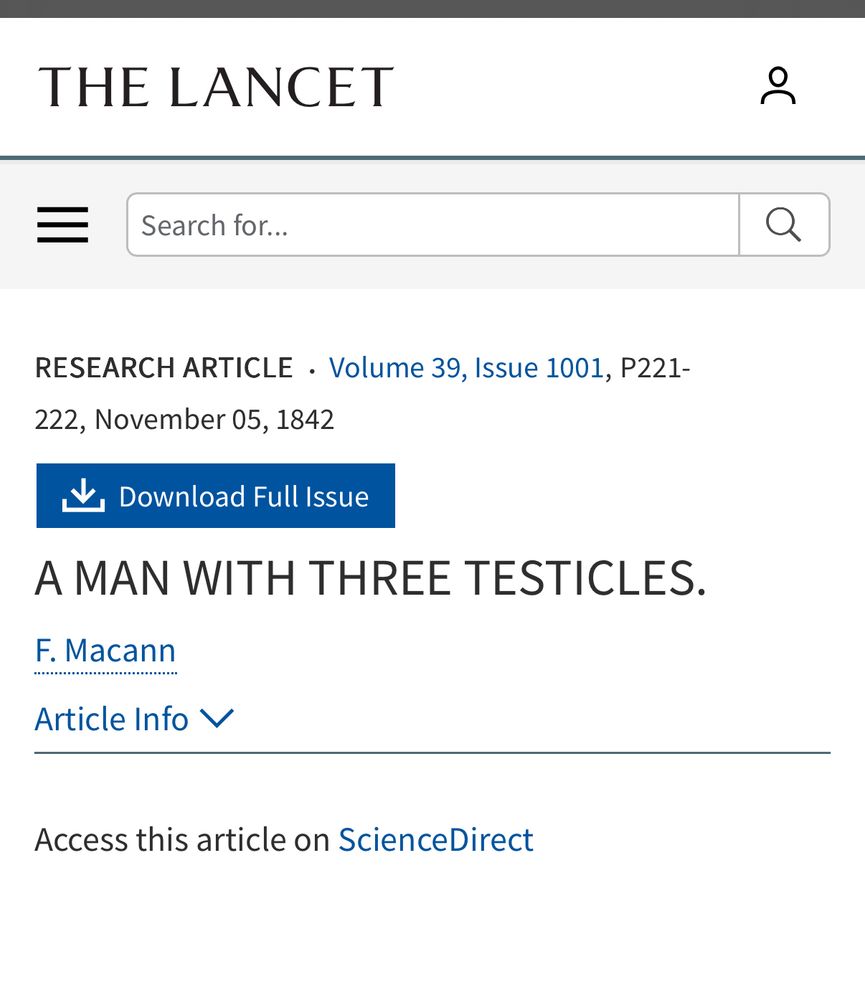
September 1, 2025 at 2:21 AM
I think 182 year old research articles should be free
I want to read about the man
I want to read about the man
Reposted by Daniel MacArthur
One for the reading pile and this scQTL x Disease in a MR framework feels a v powerful approach (more tissues / cell types please!) -
1. 🚨New preprint: tinyurl.com/tenk10k-causal.
We explored causal effects of gene expression in immune cell types on complex traits and diseases by combining single-cell expression quantitative trait loci (sc-eQTL) mapping in 5M+ cells from 1,925 donors in TenK10K study and GWAS. 🧵
We explored causal effects of gene expression in immune cell types on complex traits and diseases by combining single-cell expression quantitative trait loci (sc-eQTL) mapping in 5M+ cells from 1,925 donors in TenK10K study and GWAS. 🧵

Single-cell genetics identifies cell type-specific causal mechanisms in complex traits and diseases
Genome-wide association studies (GWAS) have been instrumental in uncovering the genetic basis of complex traits. When integrated with expression quantitative trait loci (eQTL) mapping, they can elucid...
tinyurl.com
September 1, 2025 at 8:17 AM
One for the reading pile and this scQTL x Disease in a MR framework feels a v powerful approach (more tissues / cell types please!) -
Another preprint from the TenK10K program! This work, led by @alberthenry.bsky.social and Anne Senabouth, leverages the unprecedented power of this WGS/single cell RNA-seq cohort to explore causal influences of blood gene expression on immune diseases and traits. Thread:
1. 🚨New preprint: tinyurl.com/tenk10k-causal.
We explored causal effects of gene expression in immune cell types on complex traits and diseases by combining single-cell expression quantitative trait loci (sc-eQTL) mapping in 5M+ cells from 1,925 donors in TenK10K study and GWAS. 🧵
We explored causal effects of gene expression in immune cell types on complex traits and diseases by combining single-cell expression quantitative trait loci (sc-eQTL) mapping in 5M+ cells from 1,925 donors in TenK10K study and GWAS. 🧵

Single-cell genetics identifies cell type-specific causal mechanisms in complex traits and diseases
Genome-wide association studies (GWAS) have been instrumental in uncovering the genetic basis of complex traits. When integrated with expression quantitative trait loci (eQTL) mapping, they can elucid...
tinyurl.com
September 1, 2025 at 7:42 AM
Another preprint from the TenK10K program! This work, led by @alberthenry.bsky.social and Anne Senabouth, leverages the unprecedented power of this WGS/single cell RNA-seq cohort to explore causal influences of blood gene expression on immune diseases and traits. Thread:
Reposted by Daniel MacArthur
Our latest research is out today on @medrxivpreprint.bsky.social:
www.medrxiv.org/content/10.1...
Saturation genome editing of BRCA1 across cell types accurately resolves cancer risk.
Led by the amazing Phoebe Dace. This one’s packed full of data, so check out the paper. Quick highlights… 🧵 1/n
www.medrxiv.org/content/10.1...
Saturation genome editing of BRCA1 across cell types accurately resolves cancer risk.
Led by the amazing Phoebe Dace. This one’s packed full of data, so check out the paper. Quick highlights… 🧵 1/n

Saturation genome editing of BRCA1 across cell types accurately resolves cancer risk
Germline pathogenic BRCA1 variants predispose women to breast and ovarian cancer. Despite accumulation of functional evidence for variants in BRCA1 , over half of reported single-nucleotide variants (...
www.medrxiv.org
August 18, 2025 at 7:33 AM
Our latest research is out today on @medrxivpreprint.bsky.social:
www.medrxiv.org/content/10.1...
Saturation genome editing of BRCA1 across cell types accurately resolves cancer risk.
Led by the amazing Phoebe Dace. This one’s packed full of data, so check out the paper. Quick highlights… 🧵 1/n
www.medrxiv.org/content/10.1...
Saturation genome editing of BRCA1 across cell types accurately resolves cancer risk.
Led by the amazing Phoebe Dace. This one’s packed full of data, so check out the paper. Quick highlights… 🧵 1/n
Reposted by Daniel MacArthur
🚨 New preprint led by amazing duo @rociorius.bsky.social and @alexblakes.bsky.social in collaboration with @cassimons.bsky.social, @dgmacarthur.bsky.social and many other amazing folks! ❤️
We describe the clinical phenotype of a recessive NDD associated with biallelic variants in RNU4-2 🧬
See 🧵👇
We describe the clinical phenotype of a recessive NDD associated with biallelic variants in RNU4-2 🧬
See 🧵👇
I am absolutely delighted to share our work describing a new *recessive* condition caused by variants in #RNU4-2. Yes, that #RNU4-2!
tinyurl.com/3j9r56s8
@rociorius.bsky.social @yuyangchen.bsky.social @gregfindlay.bsky.social @dgmacarthur.bsky.social @cassimons.bsky.social @nickywhiffin.bsky.social
tinyurl.com/3j9r56s8
@rociorius.bsky.social @yuyangchen.bsky.social @gregfindlay.bsky.social @dgmacarthur.bsky.social @cassimons.bsky.social @nickywhiffin.bsky.social

Biallelic variants in the non-coding RNA gene RNU4-2 cause a recessive neurodevelopmental syndrome with distinct white matter changes
Genetic variants in RNU4-2, which encodes U4, a key non-coding small nuclear RNA (snRNA) component of the major spliceosome, were recently shown to cause a prevalent neurodevelopmental disorder (NDD) ...
www.medrxiv.org
August 18, 2025 at 11:46 AM
🚨 New preprint led by amazing duo @rociorius.bsky.social and @alexblakes.bsky.social in collaboration with @cassimons.bsky.social, @dgmacarthur.bsky.social and many other amazing folks! ❤️
We describe the clinical phenotype of a recessive NDD associated with biallelic variants in RNU4-2 🧬
See 🧵👇
We describe the clinical phenotype of a recessive NDD associated with biallelic variants in RNU4-2 🧬
See 🧵👇
New preprint! The outcome of a wonderful collaboration with @nickywhiffin.bsky.social’s team to define a new recessive syndrome associated with inherited variants in RNU4-2, the non-protein-coding gene that keeps on giving.
I am absolutely delighted to share our work describing a new *recessive* condition caused by variants in #RNU4-2. Yes, that #RNU4-2!
tinyurl.com/3j9r56s8
@rociorius.bsky.social @yuyangchen.bsky.social @gregfindlay.bsky.social @dgmacarthur.bsky.social @cassimons.bsky.social @nickywhiffin.bsky.social
tinyurl.com/3j9r56s8
@rociorius.bsky.social @yuyangchen.bsky.social @gregfindlay.bsky.social @dgmacarthur.bsky.social @cassimons.bsky.social @nickywhiffin.bsky.social

Biallelic variants in the non-coding RNA gene RNU4-2 cause a recessive neurodevelopmental syndrome with distinct white matter changes
Genetic variants in RNU4-2, which encodes U4, a key non-coding small nuclear RNA (snRNA) component of the major spliceosome, were recently shown to cause a prevalent neurodevelopmental disorder (NDD) ...
www.medrxiv.org
August 18, 2025 at 9:34 PM
New preprint! The outcome of a wonderful collaboration with @nickywhiffin.bsky.social’s team to define a new recessive syndrome associated with inherited variants in RNU4-2, the non-protein-coding gene that keeps on giving.
Reposted by Daniel MacArthur
#HGSA2025 week kicks off with the OurDNA symposium tomorrow (with a preview of the OurDNA browser!) Register to attend online here👇
Hey Australian genetics/genomics friends: the OurDNA Symposium will be in Sydney on 14 August, just before the HGSA meeting. Learn more about inclusive recruitment for genomics and get a preview of the OurDNA variant browser! events.humanitix.com/ourdna-sympo...
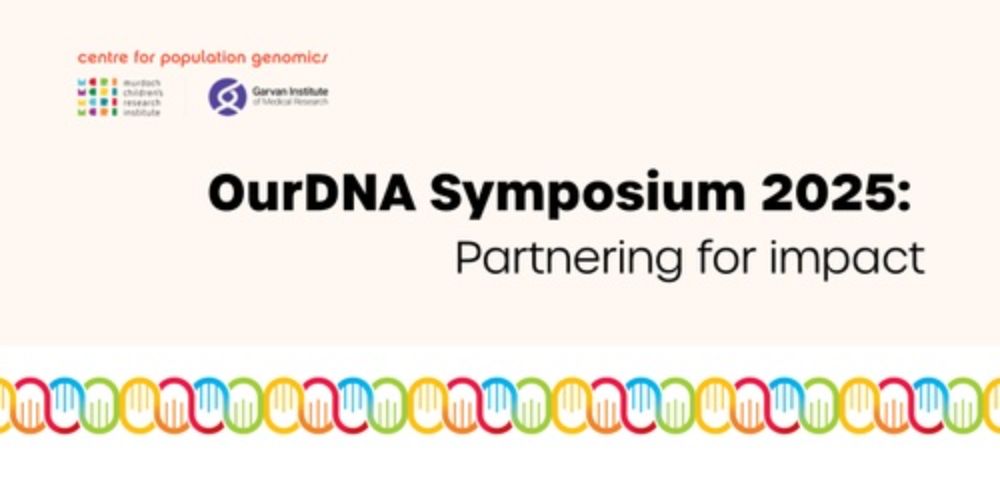
OurDNA Symposium 2025: Partnering for impact
The OurDNA Symposium brings stakeholders together for important conversations about building the foundation for equitable genomics in Australia.
events.humanitix.com
August 12, 2025 at 11:20 PM
#HGSA2025 week kicks off with the OurDNA symposium tomorrow (with a preview of the OurDNA browser!) Register to attend online here👇
Reposted by Daniel MacArthur
📣 We are recruiting! Please share!!
Are you a bioinformatician / computational scientist who wants to apply your skills to understanding regulatory biology and improving rare disease diagnosis and treatment? 🧠 💻 🧬 🩺
We have two roles available 👇
🧵 1/4
Are you a bioinformatician / computational scientist who wants to apply your skills to understanding regulatory biology and improving rare disease diagnosis and treatment? 🧠 💻 🧬 🩺
We have two roles available 👇
🧵 1/4
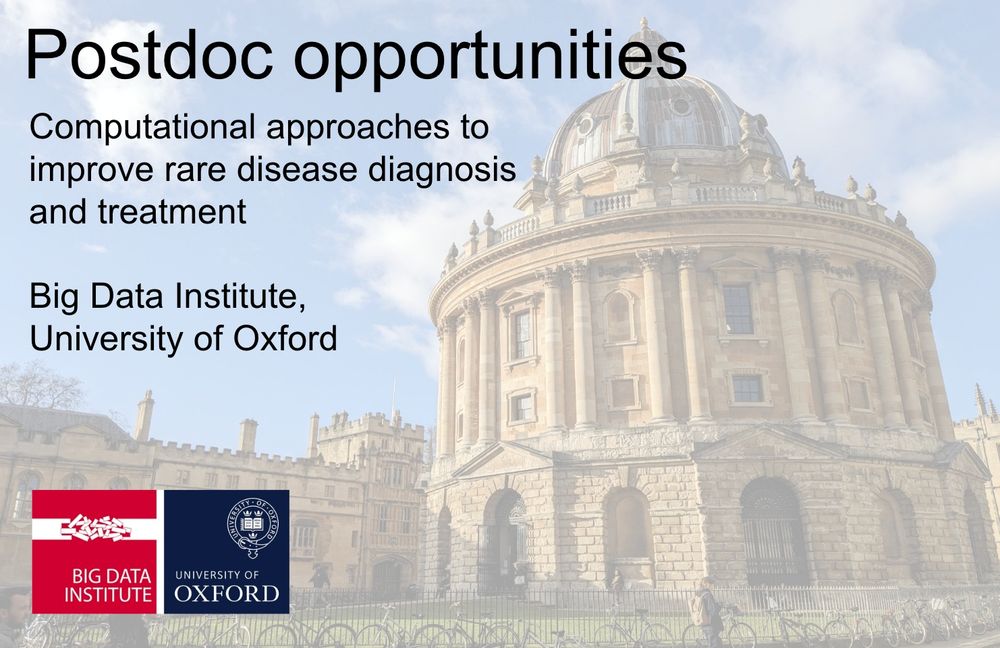
July 31, 2025 at 4:12 PM
📣 We are recruiting! Please share!!
Are you a bioinformatician / computational scientist who wants to apply your skills to understanding regulatory biology and improving rare disease diagnosis and treatment? 🧠 💻 🧬 🩺
We have two roles available 👇
🧵 1/4
Are you a bioinformatician / computational scientist who wants to apply your skills to understanding regulatory biology and improving rare disease diagnosis and treatment? 🧠 💻 🧬 🩺
We have two roles available 👇
🧵 1/4
Reposted by Daniel MacArthur
Leena Peltonen School of Human Genetics in full-swing!
@gosiatrynka.bsky.social
@dgmacarthur.bsky.social
@bpasaniuc.bsky.social
@tuuliel.bsky.social
@hilarycmartin.bsky.social
@sashagusevposts.bsky.social
@zkutalik.bsky.social
@mashaals.bsky.social
@alemedinarivera.bsky.social
@gosiatrynka.bsky.social
@dgmacarthur.bsky.social
@bpasaniuc.bsky.social
@tuuliel.bsky.social
@hilarycmartin.bsky.social
@sashagusevposts.bsky.social
@zkutalik.bsky.social
@mashaals.bsky.social
@alemedinarivera.bsky.social
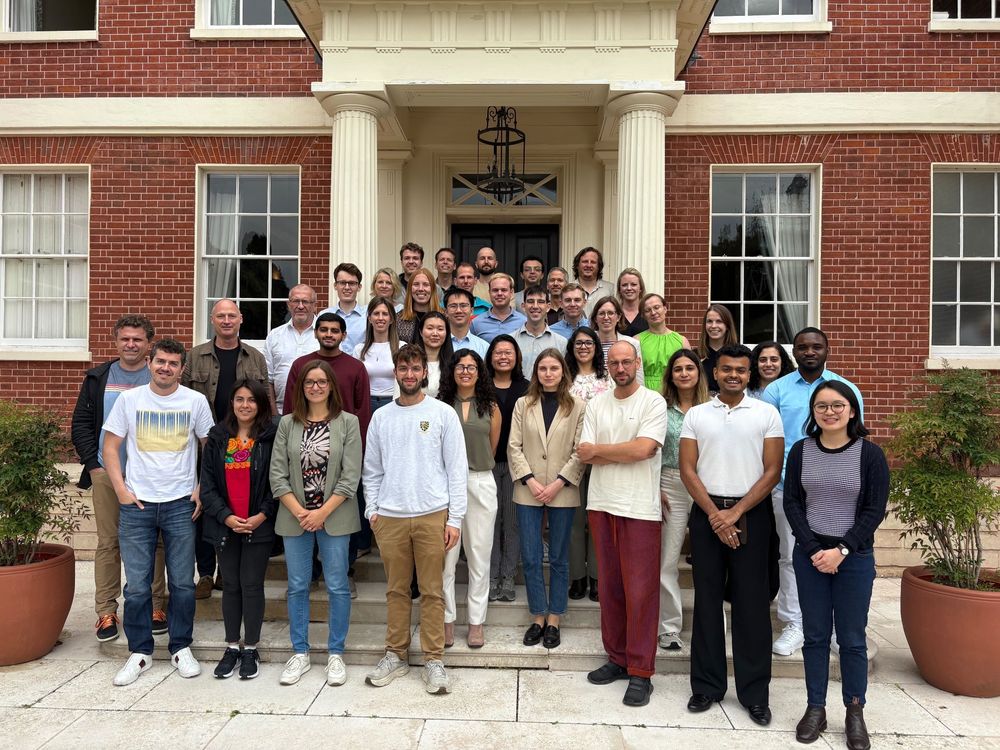
July 30, 2025 at 10:04 AM
Leena Peltonen School of Human Genetics in full-swing!
@gosiatrynka.bsky.social
@dgmacarthur.bsky.social
@bpasaniuc.bsky.social
@tuuliel.bsky.social
@hilarycmartin.bsky.social
@sashagusevposts.bsky.social
@zkutalik.bsky.social
@mashaals.bsky.social
@alemedinarivera.bsky.social
@gosiatrynka.bsky.social
@dgmacarthur.bsky.social
@bpasaniuc.bsky.social
@tuuliel.bsky.social
@hilarycmartin.bsky.social
@sashagusevposts.bsky.social
@zkutalik.bsky.social
@mashaals.bsky.social
@alemedinarivera.bsky.social
Reposted by Daniel MacArthur
This implies there is a huge literature of small microbiome association studies that is JUST NOISE. (As observed for these other fields)
July 27, 2025 at 9:15 AM
This implies there is a huge literature of small microbiome association studies that is JUST NOISE. (As observed for these other fields)
Reposted by Daniel MacArthur
About a hundred reasons not to use Excel.
Yes, these are politely described as 'spreadsheet' horror stories, but we all know which bit of software we're really talking about.
(HT @pgmj.bsky.social)
Yes, these are politely described as 'spreadsheet' horror stories, but we all know which bit of software we're really talking about.
(HT @pgmj.bsky.social)
Horror Stories | European Spreadsheet Risk Interest Group
eusprig.org
July 17, 2025 at 11:24 AM
About a hundred reasons not to use Excel.
Yes, these are politely described as 'spreadsheet' horror stories, but we all know which bit of software we're really talking about.
(HT @pgmj.bsky.social)
Yes, these are politely described as 'spreadsheet' horror stories, but we all know which bit of software we're really talking about.
(HT @pgmj.bsky.social)
Reposted by Daniel MacArthur
Peer review is not quite dead but it’s on life support and the current model of scientific publishing is a burning platform. healthydebate.ca/2025/06/topi...

Is peer-review dead? A scientist’s plea to fix a broken system - Healthy Debate
Peer-review may not be over, but the era of exploitative, opaque and corporatized gatekeeping should be.
healthydebate.ca
June 26, 2025 at 10:49 AM
Peer review is not quite dead but it’s on life support and the current model of scientific publishing is a burning platform. healthydebate.ca/2025/06/topi...
Reposted by Daniel MacArthur
Preprint out today!
A team led by @tobioinformatics.bsky.social and Bradley Harris in @carlanderson.bsky.social ‘s lab has created the largest single-cell atlas of IBD tissues to date
www.medrxiv.org/content/10.1...
A team led by @tobioinformatics.bsky.social and Bradley Harris in @carlanderson.bsky.social ‘s lab has created the largest single-cell atlas of IBD tissues to date
www.medrxiv.org/content/10.1...
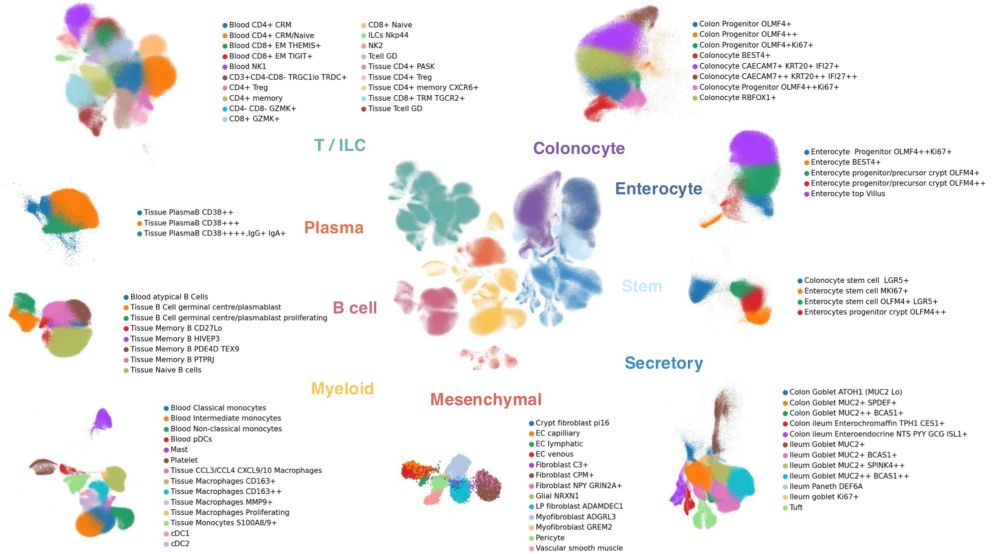
June 26, 2025 at 8:29 AM
Preprint out today!
A team led by @tobioinformatics.bsky.social and Bradley Harris in @carlanderson.bsky.social ‘s lab has created the largest single-cell atlas of IBD tissues to date
www.medrxiv.org/content/10.1...
A team led by @tobioinformatics.bsky.social and Bradley Harris in @carlanderson.bsky.social ‘s lab has created the largest single-cell atlas of IBD tissues to date
www.medrxiv.org/content/10.1...
Hey Australian genetics/genomics friends: the OurDNA Symposium will be in Sydney on 14 August, just before the HGSA meeting. Learn more about inclusive recruitment for genomics and get a preview of the OurDNA variant browser! events.humanitix.com/ourdna-sympo...

OurDNA Symposium 2025: Partnering for impact
The OurDNA Symposium brings stakeholders together for important conversations about building the foundation for equitable genomics in Australia.
events.humanitix.com
June 23, 2025 at 1:03 AM
Hey Australian genetics/genomics friends: the OurDNA Symposium will be in Sydney on 14 August, just before the HGSA meeting. Learn more about inclusive recruitment for genomics and get a preview of the OurDNA variant browser! events.humanitix.com/ourdna-sympo...
Reposted by Daniel MacArthur
I wrote a new piece on how much progress has been made in treating childhood leukemia.
The answer is: quite a lot!
Before the 1970s, fewer than 10% of children diagnosed survived 5 years after diagnosis.
Now most are cured and around 85% survive that long.
ourworldindata.org/childhood-le...
The answer is: quite a lot!
Before the 1970s, fewer than 10% of children diagnosed survived 5 years after diagnosis.
Now most are cured and around 85% survive that long.
ourworldindata.org/childhood-le...
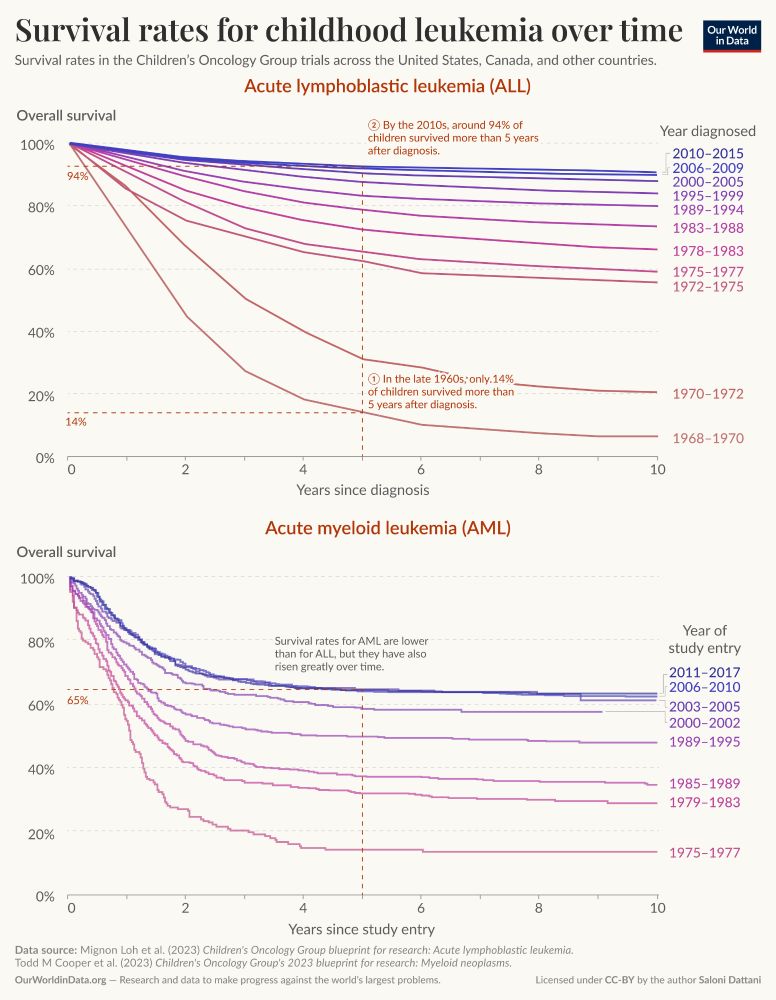
June 9, 2025 at 7:43 AM
I wrote a new piece on how much progress has been made in treating childhood leukemia.
The answer is: quite a lot!
Before the 1970s, fewer than 10% of children diagnosed survived 5 years after diagnosis.
Now most are cured and around 85% survive that long.
ourworldindata.org/childhood-le...
The answer is: quite a lot!
Before the 1970s, fewer than 10% of children diagnosed survived 5 years after diagnosis.
Now most are cured and around 85% survive that long.
ourworldindata.org/childhood-le...
Reposted by Daniel MacArthur
I worry that not enough of a big deal is being made about how long-term the devastation of these budget cuts to our scientific and health agencies will be, beyond the absolute ruin they will cause in the acute period.
June 3, 2025 at 4:51 PM
I worry that not enough of a big deal is being made about how long-term the devastation of these budget cuts to our scientific and health agencies will be, beyond the absolute ruin they will cause in the acute period.
Reposted by Daniel MacArthur
Flybase lost all of the NIH support overnight - it is a disaster for the community. Please consider donating. I just did! www.philanthropy.cam.ac.uk/give-to-camb...
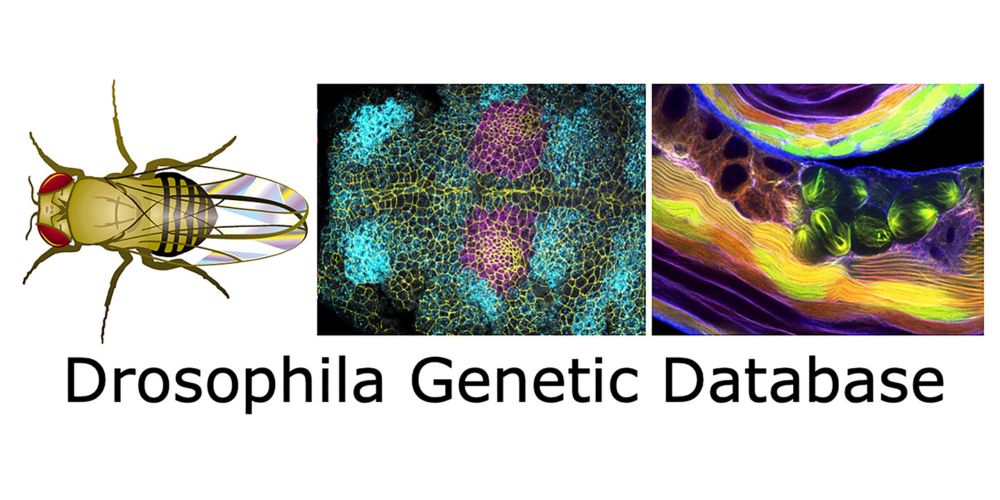
Drosophila Genetic Database
The Drosophila Genetic Database, FlyBase, is on the brink of collapse due to the sudden termination of the FlyBase NIH grant, which includes salaries for 5 literature curators based at the University ...
www.philanthropy.cam.ac.uk
June 3, 2025 at 6:23 PM
Flybase lost all of the NIH support overnight - it is a disaster for the community. Please consider donating. I just did! www.philanthropy.cam.ac.uk/give-to-camb...
Reposted by Daniel MacArthur
Jesus. Excellent work by Michael Le Page, and utterly infuriating scenario. As Michael points out, the press release from Colossal called these dire wolves throughout. But now they want to argue that they never claimed that. Scandalous, really.
www.newscientist.com/article/2481...
www.newscientist.com/article/2481...

Colossal scientist now admits they haven’t really made dire wolves
Despite a huge media fanfare in which Colossal Biosciences claimed to have resurrected the extinct dire wolf, the company's chief scientist now concedes that the animals are merely modified grey wolve...
www.newscientist.com
May 22, 2025 at 5:57 PM
Jesus. Excellent work by Michael Le Page, and utterly infuriating scenario. As Michael points out, the press release from Colossal called these dire wolves throughout. But now they want to argue that they never claimed that. Scandalous, really.
www.newscientist.com/article/2481...
www.newscientist.com/article/2481...

